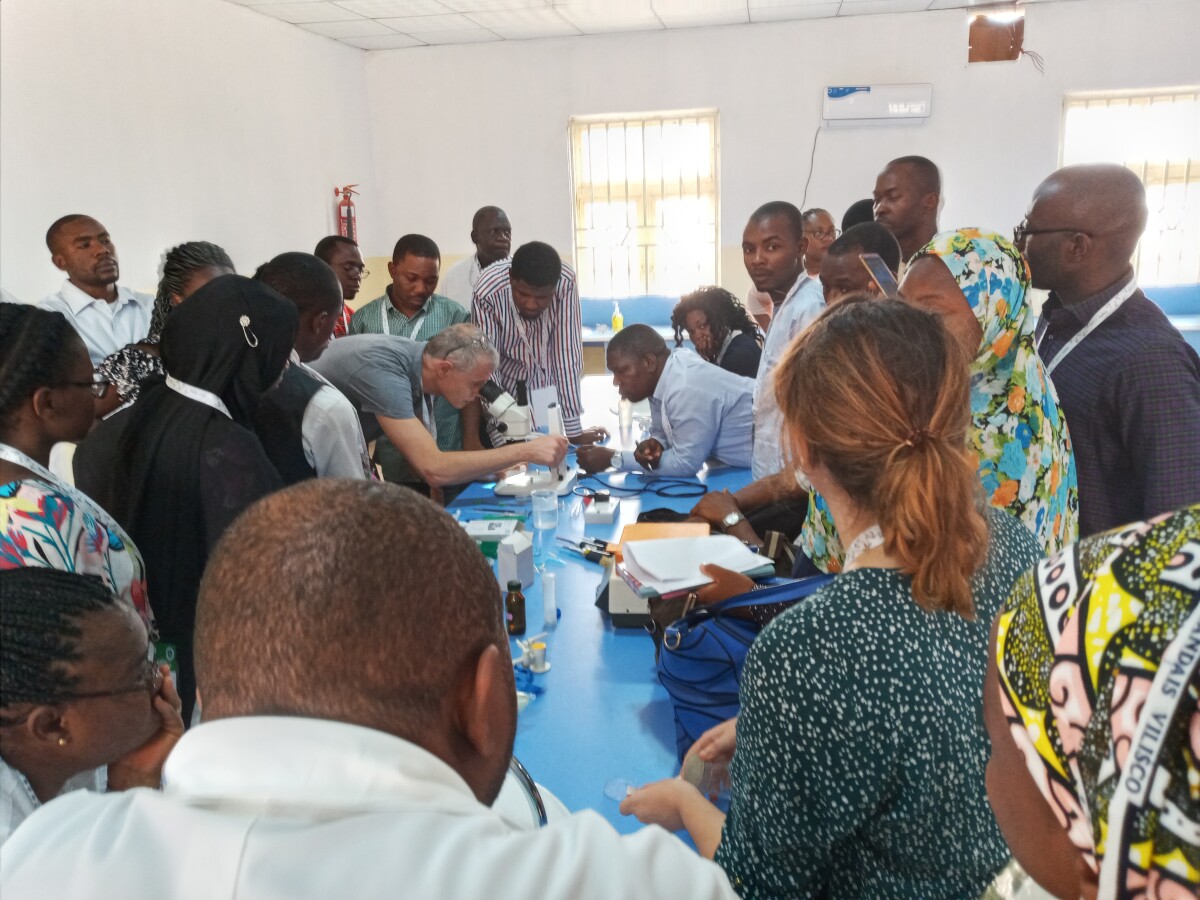DRTC-Bingham Drosophila Workshop, Karu, Nasarawa State, Nigeria

Written by Dr Abolaji (Department of Biochemistry, Faculty of Basic Medical Sciences, College of Medicine, Universityof Ibadan, Nigeria) and Dr Whitworth (MRC Mitochondria Biology Unit, University of Cambridge)
In 2019, Dr Amos Abolaji established the Drosophila Research and Training Centre (DRTC, @DrosophilaRTC) in Ibadan, Nigeria, as a non-profit and non-political organization for the purpose of facilitating the use of Drosophila as a cost-effective, alternative animal model for biomedical research and teaching in sub Saharan African countries. One of the key remits of the DRTC is to organise conferences and workshops to train scientists on the use of Drosophila melanogaster in biomedical research.
The first such workshop was held in conjunction with Bingham University, Karu, Nasarawa State, Nigeria, from March 3rd - 5th 2020. This workshop was geared towards researchers who were interested in the use of Drosophila for research, to whom an introduction to all the basic requirements was essential, and also provided an opportunity for researchers already using Drosophila to learn new skills from experts in the field. The workshop attracted sixty-two participants (Undergraduates, Postgraduates, Lecturers and Professors) from the following fields Anatomy, Biochemistry, Biology, Biotechnology, Pharmaceutical Chemistry, Pharmacology, Pharmacy, Physiology and Zoology.
To satisfy participants’ needs, the workshop consisted of a series of informative and in-depth lectures on the use of Drosophila as a model organism in biomedical research. Leading with an overview of the applications of Drosophila in research, Dr Amos Abolaji (Ibadan, Nigeria) demonstrated the wide range of biomedical topics that Drosophila have successfully delivered. The topics of particular focus included how Drosophila have been used to understand cytoskeleton remodelling proteins in neuronal maintenance (by Prof Andreas Prokop, Manchester, UK), the role of mitochondria in Parkinson’s and other neurodegenerative diseases (by Dr Alex Whitworth, Cambridge, UK) and fundamental aspects of gene expression during Drosophila development (by Ms. Mariana Alves, EMBL, Germany). The lectures were complemented by hands-on training on several techniques commonly used with Drosophila to address questions of biomedical importance. For those just starting out, there were tutorials on the fundamentals on how to set up a Drosophila laboratory with typical resources of a sub-Saharan research environment, such as tips to keep rats out of the lab, as well as refresher training on tips and tricks of fly genetics.
The workshop was an intense and fully-packed event. Feedback from the participants has been excellent with several of the participants describing how this workshop has provided the encouragement as well as the know-how to establish using Drosophila in their own labs. It is clear from the attendance and the feedback that there is a tremendous demand for this type of training forum in Nigeria. We hope to be able to conduct more workshops like this to continue disseminating the advantages of Drosophila to the research community in sub-Saharan Africa. If this can be achieved, we can expect to see the emergence in the coming years of a new wave of researchers using Drosophila to tackle questions of biomedical importance.
FEEDBACK FROM SELECTED PARTICIPANTS
‘The DRTC-Bingham workshop, for me, is a revolution for any researcher who wants to make meaningful impact. The knowledge I acquired advised me to quit my earlier research methodology to incorporate the use of Drosophila as my model. I expect to see my research using Drosophila as my model, chart a new research course in my institution and impact science positively’.
Okoro Chiedu Azubuike, Federal University of Technology Owerri
‘The workshop was quite expository. My HOD has already created and furnished a space for Drosophila research. We are set to begin, but only waiting for normalcy to return to the university environment, so we can start.’
Dr Justin Atanghwo, Biochemistry Department, University of Calabar, Nigeria
‘DRTC-Bingham workshop in Karu was a great experience. I had plans to start up something before the lockdown. As soon as the coast clears I shall commence.’
Mrs Chineye, Sokoto State University, Nigeria
‘It was really a privileged meeting with the facilitators at once. I must commend their efforts. I learnt many things, especially the role of genetics in the Drosophila melanogaster in research etc. Moreover, I had expected more of demonstrations and practicals (for the genetics) than theories.’ Aliyu Jubril, Ahmadu Bello University, Zaria, Nigeria
Acknowledgements
- We thank Cambridge-Africa Alborada Research Fund UK for sponsoring the trip of Dr. Alex Whitworth and DrosAfrica who provided the flight ticket of Mariana Alves.
- Bingham University Karu, Nasarawa State

